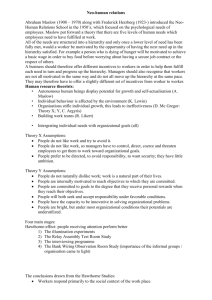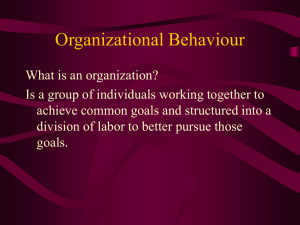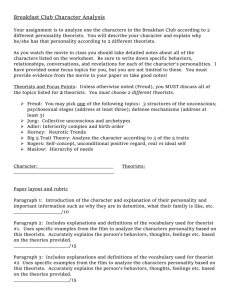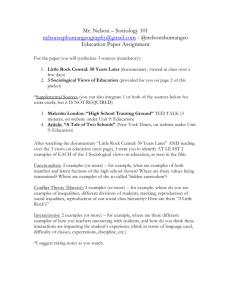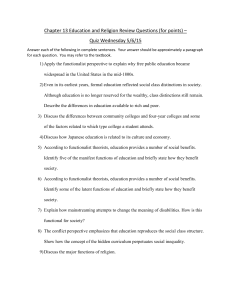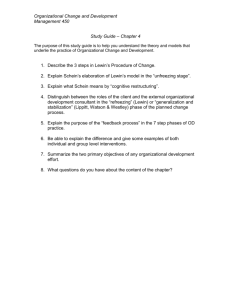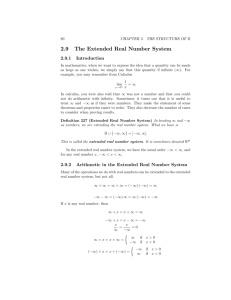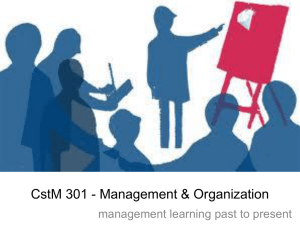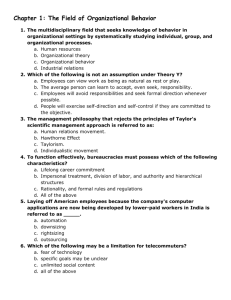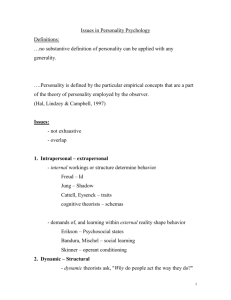Neo-Human Relationists
advertisement
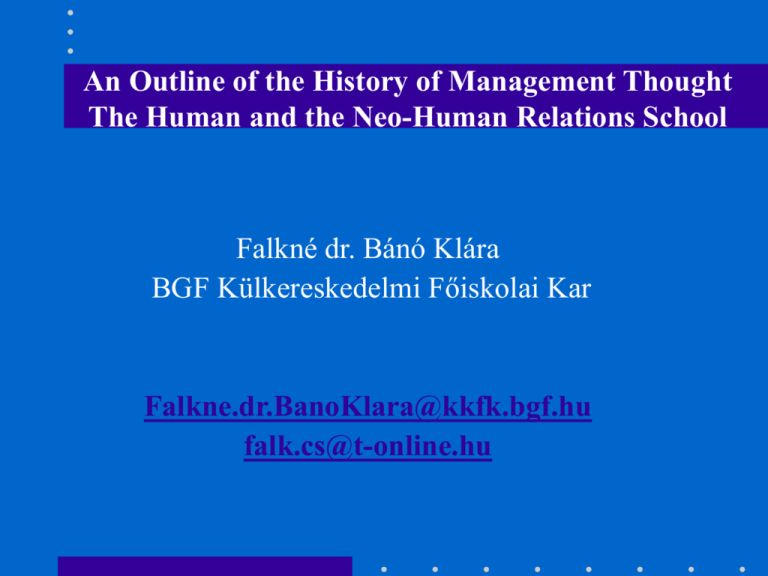
An Outline of the History of Management Thought The Human and the Neo-Human Relations School Falkné dr. Bánó Klára BGF Külkereskedelmi Főiskolai Kar Falkne.dr.BanoKlara@kkfk.bgf.hu falk.cs@t-online.hu Summary of Management theories The Hawthorne Studies (1924-32) (E. Mayo) Four main stages: Hawthorne effect – people receiving attention perform better 1. The illumination experiments 2. The Relay Assembly Test Room Study 3. The interviewing programme 4. the Bank Wiring Observation Room Study (importance of the informal groups/organisation came to light) THE CONCLUSIONS DRAWN FROM THE HAWTHORNE STUDIES • Workers respond primarily to the social context of the workplace. • The workers’ need for recognition and a sense of belonging are important. • A person’s attitude to work is shaped by the group to which he/she belongs in the company. The worker is more responsive to the social forces of his/her peer group than to the controls and incentives of management. Comparing the Classical and the Human Relations School Early Modernists Compared; the Neo-Human Relationists (Human Resource Theorists) Human Resource Theorists (Neo-Human Relationists) • Autonomous human beings display potential for growth and self-actualisation (A. Maslow) • Individual behaviour is affected by the environment (K. Lewin) • Organisations stifle individual growth, this leads to ineffectiveness (D. Mc Gregor: Theory X; Y, C. Argyris) • Building work teams (R. Likert) • Intergrating individual needs with organizatonal goals (all) Human Resource Theorists (Neo-Human Relationists) Kurt Lewin • Field theoretic perspective – the environment has an influence on the behaviour of an individual • The notion of action theory and research – social scientists should not only describe human activity (human relationists) but should learn from active attempts to change social systems Lewin’s influence is apparent on Likert, Mc Gregor, Argyris THE NEO-HUMAN RELATIONS SCHOOL (or Human Resource Theorists) continued the tradition of the Human Relations School but they went further: • Human beings are autonomous beings (not only social beings) who wish to utilize their creative potential. • These theorists are concerned with productivity in the workplace and the application of behavioural science concepts to increase organisational effectiveness. • They all advocated participative democracy as a way of functioning in modern organisations. Behavioural management theory (Human and Neo-Human Relations) Behavioural management theory (Human and NeoHuman Relations Schools) General Summary cont.

